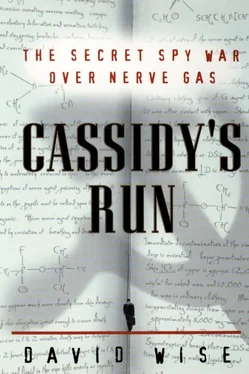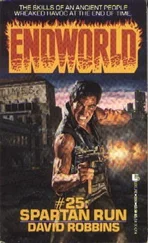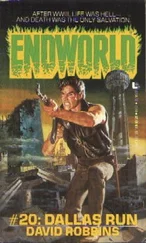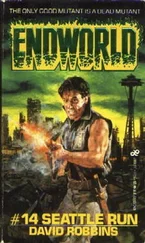Julie Kirkland soon became aware that her husband was working on a big case, although she did not know its nature, or the code name PALMETTO. Mark said little about the case. But he grew the scraggly beard and long hair, and Julie realized he was operating undercover. Having worked for the FBI herself, she was able to put some of the pieces together. “I knew the name Lopez, I knew they were at the university, and Mark had installed the equipment, the cameras, and listening devices, and I knew they were monitoring from a nearby apartment. Mark didn’t come home and blab, but I had held a top-secret clearance, after all, and it wasn’t hard for me to figure out what was going on.”
One of Kirkland’s first moves was to try to place informants close to the PALMETTOs. The Kirklands had become friendly with a family that lived in the neighborhood, and Mark recruited the woman as an FBI source. At his request, she enrolled in one of Lopez’s courses.
“I just knew him as a student,” said the woman, who asked not to be named. “I talked to him a couple of times after class and at student-teacher conferences. It was a course in Chicano studies, and he definitely felt Chicanos were mistreated. He talked about the plight of the Mexican peasants and the ones that came as migrant workers. He was focusing on low wages, poor housing. I wrote reports to Mark on Lopez once a week or more. Mark had wanted me to arrange to baby-sit for Lopez, who had both children with him. I was planning to tell him I was in dire straits in the hopes he would say ‘We need a baby-sitter.’”
The bureau’s other undercover source was a man also enrolled as a student. Both were designated “134s,” which in the jargon of the FBI means informants. Kirkland himself mixed with students on the campus to gather intelligence on Lopez. Despite the blanket coverage, however, including the wiretaps and physical surveillance, the FBI never detected Lopez servicing any dead drops in Minnesota or contacting the Soviets.
As the months slipped by, Julie Kirkland became increasingly concerned about her husband’s assignment. This was a spy case, and it very likely involved the Russians. She worried about Mark’s safety.
“I remember confronting him and saying, ‘You obviously are trying to unravel something.’ He said, ‘For your own good, Julie, let’s not talk too much about it.’ He said, ‘If anything ever happens to me, it’s better if you don’t know anything.’
“Mark had gone to Washington for the case, and he told me that the information had gone to Attorney General Griffin Bell.
“Right before he died I’d gotten pretty insistent. I didn’t think it was good for our relationship for Mark to be so deep in a secret life that I wasn’t part of. How long would he stay in espionage work? It gave him the thrill he liked, but it wasn’t good for family life.
“On the day he left, he thought the Lopezes were going over the border into Canada. He didn’t say what the bureau suspected the Lopezes were planning to do in Canada. I had two babies and I really didn’t want to know.
“I was concerned about his flying all the time. He flew a lot with Tren Basford, but Mark was not trained as a copilot. Mark talked Tren into delaying his retirement so the plane would be available. It was Tren’s private plane.”
And then it was Tuesday, August 23, and Mark Kirkland kissed Julie good-bye on the forehead and told her not to worry.
Two decades afterthe Cessna went down in Dewey Lake, Julie Kirkland still felt the pain of her husband’s death. She had remarried and her two sons were grown men now. But the shadow was always there, even when the days were bright.
“We have a very nice life,” she said. “But we can never replace what Mark was to us. You don’t forget.”
Soon after her husband’s death, Julie Kirkland sat down to write a private account of all that had happened. As if entered in a diary, she recalled her feelings in the days before Mark’s death, and afterward. “Ever since Ron Williams, Mark’s best friend, was killed last year I’ve taken to worrying and being fearful for Mark,” she wrote. “He has been working undercover and I know so little about his daily activities any more. I’m insecure about it.
“We had an argument the morning he left…. I feel bad about it now, I wish I hadn’t been upset. We smoothed it over though and I hugged him a lot. Kenny was so sweet—hugged Daddy a lot, too. I still worried—mostly I think because I don’t understand the case—Top Secret. I hated us not sharing….
“The days were sweet with the babies. I’m used to being on my own with them. Mark is gone a lot and me and the little boys are great buddies.
“I planted flowers around the front of the house. Just took care of the boys and home. Mark called every night.”
Then came the entry for August 25. She wrote of her growing fear that night, and her call to the FBI operator, who sounded odd and obviously knew more than she was saying. “The minutes ticked by like hours. I was cold and nervous. I began praying, but nothing helped…. Mark always called me from the field.”
“Sometime between 11–12 I heard cars in the drive, not one, but several. I was panicky. My heart sank. I pleaded with God to stop this from happening, to please, please not take my husband from me. But I knew it was happening.”
Then came the knock on the door that, at first, she could not bring herself to answer. She sat on the top step of the stairs, knowing what it was, and finally forced herself to go down and answer the door.
When she received the horrific news from John Shimota and the other FBI men, she wrote, “I kept saying over and over ‘It can’t be true, it can’t be true.’ ‘What about our boys? Won’t they ever know their father?’… I was shaking all over. Very cold still. My teeth chattered.
“Then John said Tren was gone, too.”
The next few days were a blur. Her father, neighbors, people from church came to comfort her. A close friend, Barbara Olsen, took care of the boys. She slept little.
Alone at the funeral home by Mark’s coffin, she looked at her husband for the last time. “By the side of his casket I promised him I would raise good men he would be proud of. And I will.”
Then she kissed him good-bye.
The next day she took Mark Kirkland home to Utah. At the graveside, “I thought Mark would have loved this day. It was a breathtaking day, blue skies, wispy clouds, pleasant temperature, breezy.” They buried him next to his father, below the mountain in Centerville where he had spent his childhood.
Back in Minnetonka, Julie finished writing.
We are alone now—me and Kenny and Chris. In a big old antique house in Minnesota. What happened to the dream we started only five and a half years ago? I don’t know why this happened. I do know we will be OK. And Kenny and Chris will be good men someday. They are such perfect little boys already.
I had the FBI insignia carved on Mark’s gravestone. I want anyone who sees it to know how much he loved America and believed in what he was doing.
He died being an FBI agent—what he always wanted to be. He died serving others. I wanted him to be remembered as a husband, father, and an FBI agent.
—Sept. 1977 Julie Kirkland
For Phil Parker,the tragic death of the two agents was a severe emotional blow. He felt a personal responsibility, asking himself over and over whether he might have been able to act sooner and do more to bring about an arrest. Had he done so, he thought, the accident might never have happened.
Parker had flown to Minneapolis several times to confer with Kirkland. The two had become good friends, a bond strengthened by their shared determination to roll up the PALMETTOS.
Читать дальше












